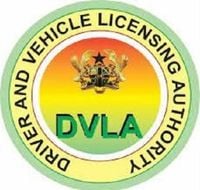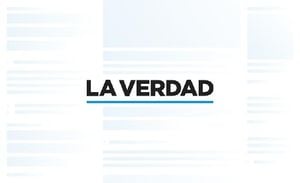The Driver and Vehicle Licensing Authority (DVLA) of Ghana is facing a daunting financial crisis, with CEO Julius Neequaye Kotey revealing that the agency is burdened with significant debts and questionable contracts. Speaking on TV3’s Hot Issues on March 30, 2025, Kotey disclosed that the DVLA owes approximately $160 million to a company contracted in 2023 for monitoring services, whose actual work remains unclear.
During the interview, Kotey stated, "There’s one which is very alarming. There’s a company which I will not mention the name, they had an agreement with DVLA and anybody you ask doesn’t seem to know what the real work of the company is, they are supposed to do some system monitoring and something and the Ministry of Finance is supposed to pay about GHC 50 million every year." He further noted that despite being in the third year of the contract, no payments have been made to the company.
According to Kotey, the contract binds the DVLA to payments amounting to approximately GHC 160 million by the end of 2025. He has since forwarded the contract details to the Transport Minister, Joseph Bukari Nikpe, for further scrutiny. "We take it and see what the issues are," Kotey added, emphasizing the need for clarity on the contract's structure.
In addition to the hefty sum owed to the unnamed company, Kotey revealed that the DVLA is also indebted to another firm for internet services. The contract, signed in November 2024 for five years, is worth about $5 million, but he described the services as "very poor." Kotey stated, "It’s very poor when you go to DVLA and people are in queue waiting for service to be rendered to them it’s because of our system."
Moreover, the DVLA owes a third company $12 million for a vehicle registration system, with only $2 million paid thus far. Kotey explained, "The third company has to do with the system that was procured for vehicle registration. For the system that was procured for vehicle registration, that system too the entire contract was about $14 million and they paid only $2 million leaving $12 million for us to come and pay."
The DVLA, established under Act 569 of 1999, operates as a semi-autonomous public-sector organization under the Ministry of Transport. Its primary mission includes promoting road safety through the licensing of drivers and vehicles and ensuring the roadworthiness of vehicles. However, the agency is reportedly saddled with debts totaling approximately GHC 300 million and $150 million in its dollar account, liabilities inherited from former CEO Kwasi Agyemang Busia.
Recent years have not been kind to the DVLA, which has struggled with operational inefficiencies and financial mismanagement. As part of efforts to address these issues, 13 staff members were interdicted, and three others had their appointments terminated in 2023 due to violations of the authority's code of conduct. These disciplinary actions were announced during the DVLA's 25th-anniversary celebration and mid-year review conference in Sunyani.
The Board Chairman, Frank Davies, emphasized the importance of maintaining a customer-focused organization, urging staff to embrace innovative solutions and technological advancements to improve service delivery. The DVLA has also announced plans to promote the adoption of electric vehicles as part of a broader strategy for environmental sustainability.
In light of the financial challenges, strategic recommendations for the new CEO include conducting a comprehensive financial audit to identify underlying issues and establish a sustainable debt repayment strategy. Additionally, expanding digital services, such as online license applications and renewals, can streamline operations and reduce costs.
Furthermore, regular staff training and professional development programs are essential to align operations with international best practices. Implementing internationally recognized standards, such as ISO 9001 for quality management and ISO 18013 for driver's licenses, can elevate service delivery and enhance interoperability and security.
Stakeholder engagement is also vital; building partnerships with local and international stakeholders can foster collaboration and provide resources for sustainable reforms. Moreover, transparent financial reporting mechanisms should be instituted to restore public trust and enforce accountability across all organizational levels.
The significant financial challenges and disciplinary issues facing the DVLA demand an urgent organizational shakeup. A thorough investigation is needed to uncover and penalize individuals responsible for financial mismanagement and misconduct. By doing so, operational integrity can be restored, and a culture of ethical governance can be established.
The DVLA stands at a crossroads, with the opportunity to emerge as a model institution that exemplifies global excellence and fulfills its mandate sustainably. Through bold reforms and visionary leadership, the DVLA can ensure road safety, professionalism, and innovation remain central to its operations. Let this period mark a turning point not only for the DVLA but also for public-sector governance in Ghana as a whole.






